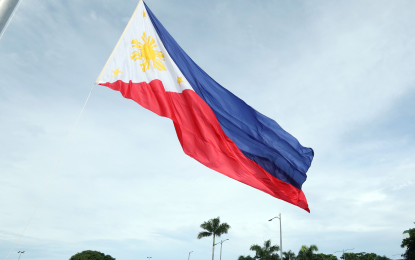
GENEVA — The Philippines along with 10 other countries submitted a draft treaty that would ban autonomous weapon systems incapable of being controlled by humans to a United Nations experts’ meeting here this week.
The proposed ban also covers autonomous weapon systems that are not compliant with international humanitarian law. It requires countries to regulate other autonomous weapon systems to ensure “that meaningful human control is retained” in their entire life cycle.
“This draft demonstrates the Philippines’ commitment to preventing machines and algorithms from taking over decisions involving life-or-death, or reducing humans to mere data sets for these machines to interpret,” said Evan P. Garcia, the country’s permanent representative to the UN in Geneva, in a statement.
The Philippines joined Argentina, Costa Rica, Ecuador, El Salvador, Kazakhstan, Nigeria, Panama, Sierra Leone, and Uruguay, in drafting and submitting the draft treaty to the Group of Government Experts (GGE) tasked with discussing proposals to address the issue of autonomous weapon systems under the framework of the UN Convention on Conventional Weapons (CCW).
The said GGE is meeting in Geneva this week under the chairmanship of Brazilian Ambassador Flavio Damico. The meeting is expected to submit recommendations to CCW state parties, which will hold their annual conference in November.
The CCW is an umbrella treaty consisting of five protocols, each prohibiting or regulating specific weapons that have indiscriminate and superfluous humanitarian effects.
Such weapons have included landmines, incendiary weapons, and blinding lasers, among others. If adopted, the draft ban on autonomous weapons would be the sixth such protocol.
Aside from the draft protocol, the GGE is also considering other proposals this week, including proposals for voluntary measures regulating the development of autonomous weapon systems.
“Our call to negotiate a new protocol is not mutually exclusive to some thoughtful proposals on voluntary measures. Codifying fundamental convergences on the retention of meaningful human control in a binding document does not preclude discussions on voluntary regulatory measures, possibly in an annex,” said Jonelle John S. Domingo, Philippine delegate to the GGE.
“What our draft demonstrates is that after eight years of discussions, we now have sufficient elements to proceed with the negotiation of a legally-binding instrument on autonomous weapon systems. We believe this should be sufficiently reflected in our report,” Domingo said.
There have been growing calls from many states, international organizations like the International Committee on the Red Cross (ICRC) and civil society groups to negotiate binding rules that would ensure humans retain control over the use of force.
These calls have been echoed by world leaders like Pope Francis and UN Secretary-General Antonio Guterres. (PR)
